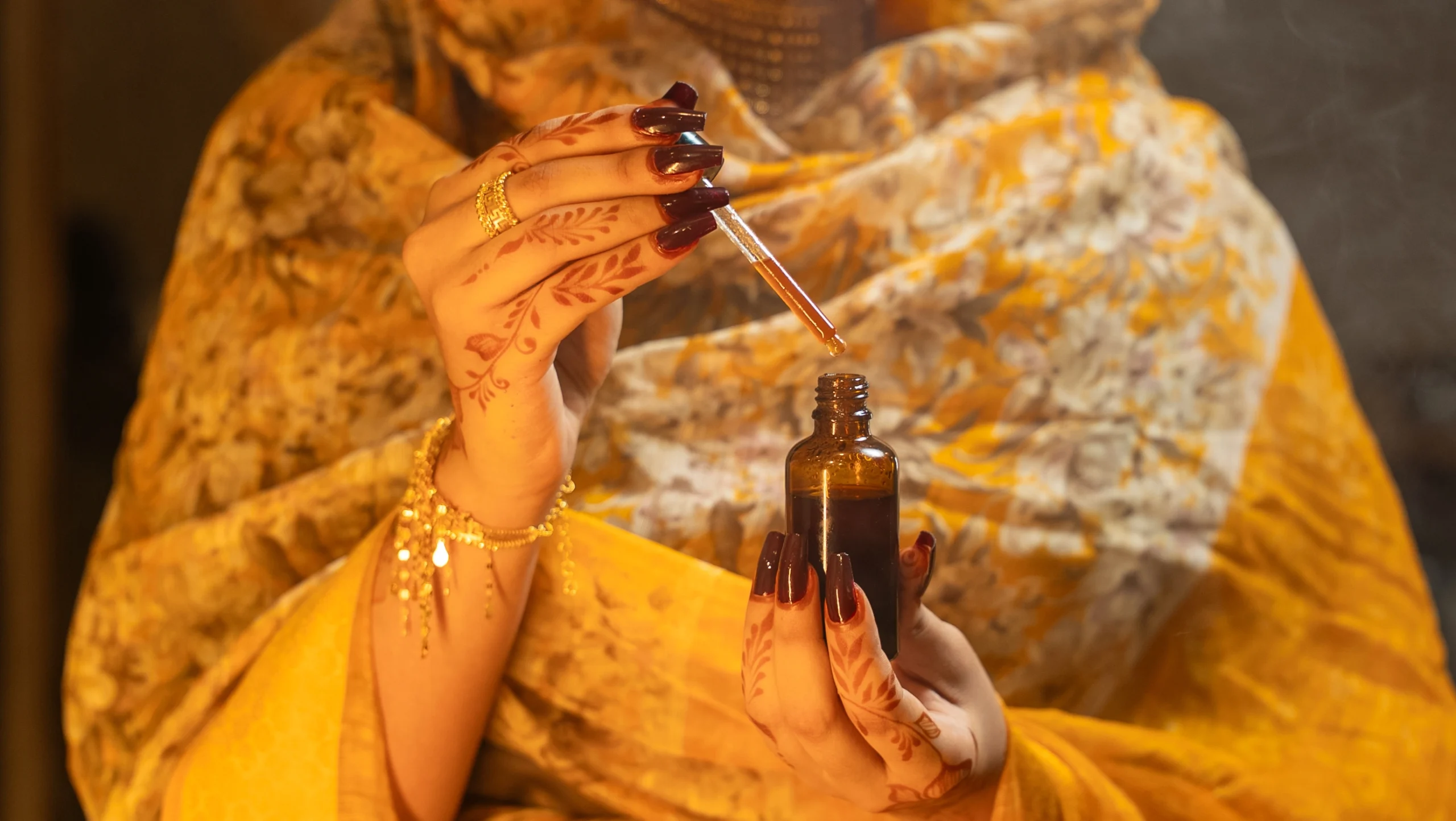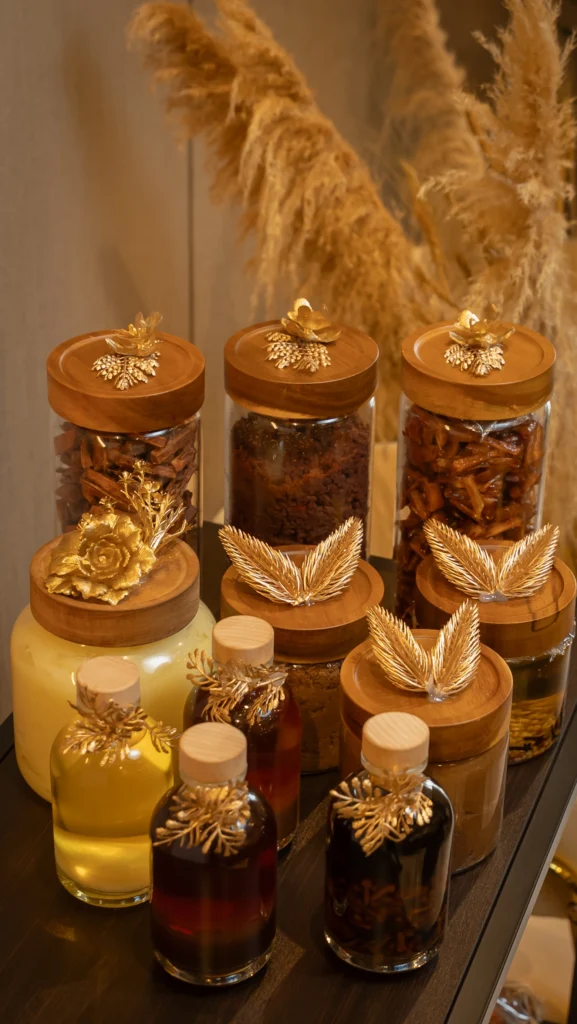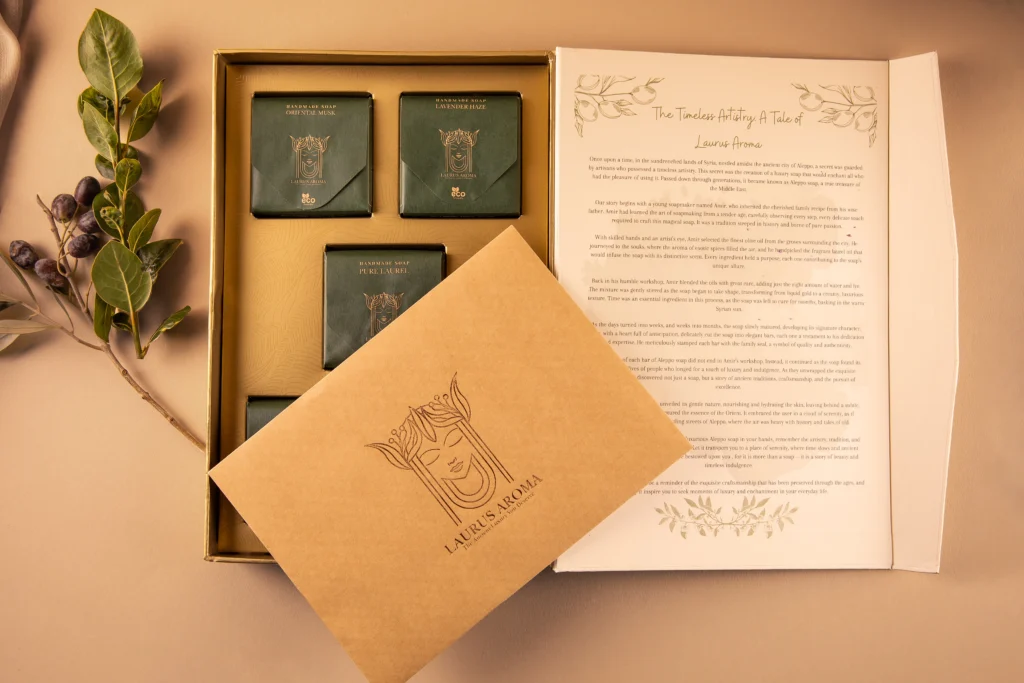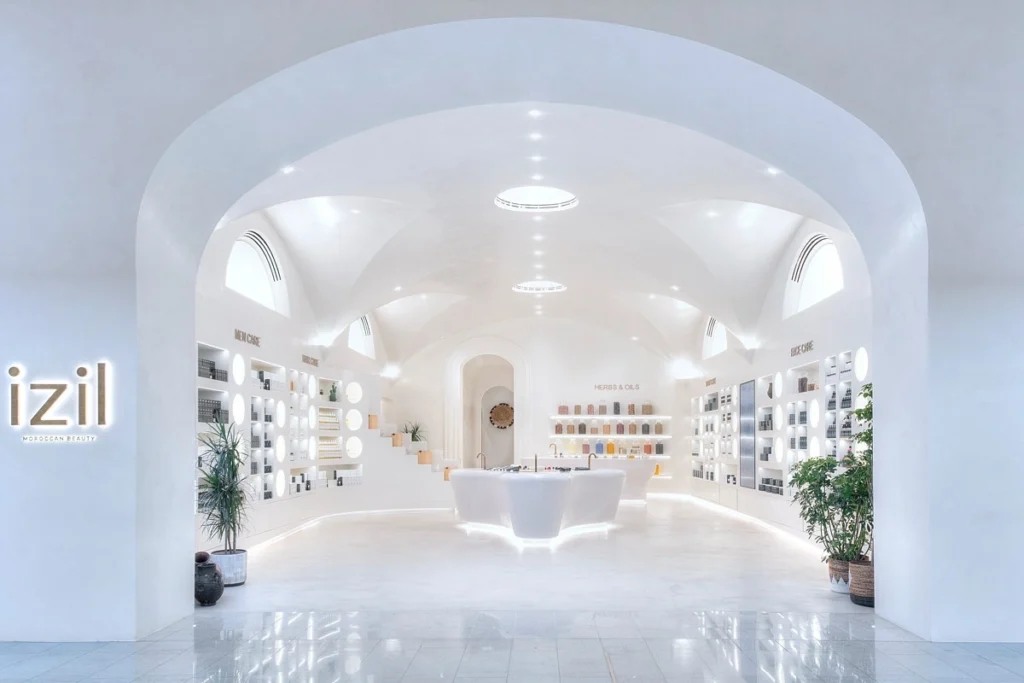Charm Revive
Sudanese Beauty Rituals
By Alhanouf Mohammed Alrowaili

In the heart of Sudan, where ancient customs are woven seamlessly into everyday life, herbalism and perfumery are not just practices; they are cultural legacies. For centuries, Sudanese communities have turned to the land’s rich offerings: hibiscus, myrrh, frankincense, and countless herbs to heal, beautify, and celebrate. These ingredients are transformed into fragrant oils, scrubs, and rituals that embody Sudan’s spiritual and cultural richness. Whether in vibrant markets or home rituals, the scents of Sudan tell stories of connection, identity, and holistic well-being.
Founded in 2021 by sisters Abeer and Hadeel Agab, Charm is a Sudanese brand born from deep respect for these traditions. Raised in a home filled with the aromas of incense and traditional beauty practices, the sisters were immersed in the heritage of scent passed down from mothers and grandmothers. With Abeer’s background in pharmacy and Hadeel’s in the humanities, they saw a gap: despite the cultural significance of perfumery in Sudan, formal education in the craft was lacking. Charm was created to blend ancestral wisdom with scientific precision, elevating Sudanese beauty rituals to global standards while preserving their authenticity.
At the center of Sudanese perfumery is Khumra, an artisan fragrance made by smoking a blend of spices, rose petals, and aromatic woods over incense. The mixture is then steeped in oils to develop a deep, lingering scent. Traditionally prepared weeks before weddings, Khumra is more than perfume. It’s a communal ritual led by women, symbolizing femininity, connection, and continuity.
Another cornerstone in Sudan is Dukhan, a smoke bath ritual rooted in Sudanese culture and history, using woods like shaff and talh. After massaging the body with karkar oil, a nourishing blend of sesame oil, animal fat, cloves, and beeswax, a woman sits wrapped in cloth as the smoke envelops her. The ritual is believed to soften the skin and promote mental clarity.
While recent studies have identified some health risks, such as increased chances of asthma, allergies, and other serious illnesses, many women have chosen to stop using Dukhan or have sought safer alternatives as a protective measure. However, throughout history and even today, some Sudanese women continue to practice Dukhan in ways that minimize these risks. This includes reducing frequency of use, carefully selecting tools and materials, and relying on deep knowledge of the process to limit exposure.
Sudanese bridal care is rich and layered. Preparations begin with Dukhan, followed by dukkah body scrubs, deep moisturization, and hair treatments with karkar oil. Hands, arms, and feet are adorned with detailed henna designs. In rural areas, these rituals remain community-driven; in urban settings, they blend with spa culture, adapting while remaining true to tradition.
Sudanese skincare and haircare are grounded in natural remedies. Karkar oil strengthens hair and leaves it fragrantly soft. Dilka, a handmade exfoliant, comes in two varieties for smoothing and glowing skin. Aruka, a gentle, fragrance-free powder, is mixed with milk or rosewater to
The Hubsa period supports new mothers through herbal massages, warming foods, and beauty treatments. These practices aid in physical recovery and emotional grounding, using elements like karkar oil and henna to connect women with their strength and heritage. In Sudanese weddings, Jirtig is a spiritual and ceremonial rite that crowns the groom with blessings from female elders. Fragrances and sacred oils are central, transforming perfume into a symbol of honor and marital unity.


Sudanese perfumery dates to ancient civilizations like Kerma, where ingredients like sandalwood and frankincense were used. Charm honors this history by using natural materials like talh and shaff, while incorporating modern practices like aging perfumes in glass and avoiding harsh synthetics.
Charm is part of a growing movement recognizing Sudanese perfumery across Africa and the Arab world. With its commitment to quality, storytelling, and sustainability, Charm crafts handmade, natural products that speak to both heritage and global wellness trends.
In a world filled with mass-produced beauty, Charm offers something deeper: a sensory link to Sudanese identity, memory, and ancestral care. Through each drop of oil and trail of incense, the brand invites the world to experience the timeless beauty of Sudanese rituals: uncompromised, unforgettable, and alive.




